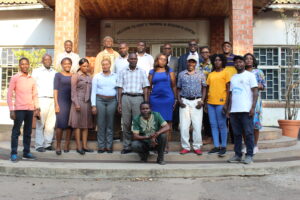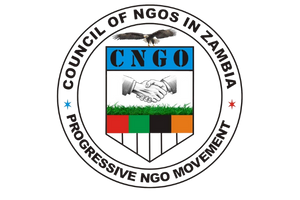The Council of NGOs in Zambia in the first week of November conducted consultative meetings in five different Provinces namely: Copperbelt, Central, Southern, Western, and Eastern Provinces. These meeting were lead by the Provincial Chairpersons of the Respective Provinces. In attendance Mongu District Commissioner, Mr. Morgan Akabesw, invited as Guest of Honor during the meeting in Western Province, different NGOs representing the NGO Sector, different Media Houses.
The Chairpersons in the respective provinces gave an opening speech on behalf of the Chairperson of the Council of NGOs in Zambia. In reading the speech, the chairperson stated that the Council of NGOs in Zambia is a statutory body established under Section Thirty (30) of the NGO Act No. 16 of 2009 to facilitate and coordinate the effective operation and engagement of the NGOs sector in Zambia, and subject to the direction of the Zambia Congress of Non- Governmental Organizations (ZCNGOs), shall be responsible for the management and control of the affairs of the Congress
The Provincial NGO Forum is a collective forum of all NGOs operating in this province. The chairpersons of the PNGO forums are elected/seconded at the ZCNGOs which was last held in 2018
In line with its mandate, the Council of NGOs is currently managing a project with financial and technical support from Federal Republic of Germany under the Deutche Gesellschaft Fuer Internationale Zusammenarbeit (GIZ) through the GIZ Project “Enable Access to Justice, Civil Society Participation and Transparency (EnAct)”. I am pleased to inform all invited participants that the current activity we are undertaking today is through the gracious support of the project.
As we are aware, Zambia has a progressive Constitution providing civil rights and freedoms which NGOs in Zambia exercise through their engagement in various processes of interest. However, many challenges exist that restrict NGO actors’ engagement in national processes hence leading to poor opportunities for effective civic voices.
It is, therefore, important for the voices of beneficiaries through the NGOs to be heard on various platforms and issues as well as, through various activities that are well coordinated so as to speak with one voice on common issues concerning the people of Zambia.
NGOs must, therefore, coordinate and use evidence based advocacy, collectively or rooted advocacy with beneficiaries to ensure duty bearers understand the impact and extent to which issues concerning communities are or affect national planning, programmes and policies.
While CNGOs in Zambia has a nationwide membership, it therefore, becomes important to construct, design and develop an advocacy strategy with inputs from members in the sector itself. This inclusion of the contribution the NGO wider membership helps create a sense of ownership and members feel sense of representation. This is the reason that CNGOs in Zambia found it prudent to get a random sample of provinces to engage in deliberation on the development of this advocacy strategy to strengthen the national strategy and ensure members speak with one voice on issues of common interest to the NGO sector.
He further reminded the members in attendance that since the establishment of the CNGOs in Zambia in December, 2012, such a strategy had been non-existence. In this regard, sincere gratitude to the GIZ for this support to the development of this strategy.
It was stated that development of the Advocacy and Communications Strategy, was developing ways in which all NGOs in the country can be effectively coordinated and speak with one voice on different issues that are affecting the CSOs and the nation at large.
Appreciation was given in advance, for all the efforts and inputs that all participants would contribute towards the Development of the Advocacy and Communications Strategy. We also appreciate the different efforts provided by the different partners especially GIZ and the Ministry of Community Development and Social Services through the Department of Registrar of the NGOs (DRNGOs) for making this meeting possible. Let’s ensure to deliberate on the different areas that affect the NGOs and the Civil Society sector in general.
In conclusion, an update was given on the Repeal and Replacement process of the NGO Act. Government through the Cabinet, early this year, approved in principle the tabling of a Bill before parliament to repeal and replace the controversial and divisive NGO Act. To this end, the CNGOs, the DRNGOs and Ministry of Justice are effectively engaging in reviewing the draft NGO Bill developed in 2020 to refined it before subjecting it to the National NGOs’ Validation meeting which is mooted to happen before the fall of this year.



As Chitsitsimutso (Restoration) circles of life organization we acqured more understanding the operation of the Council of Non governmental organization in Zambia during the eastern province capacity building
Thank you for your response.